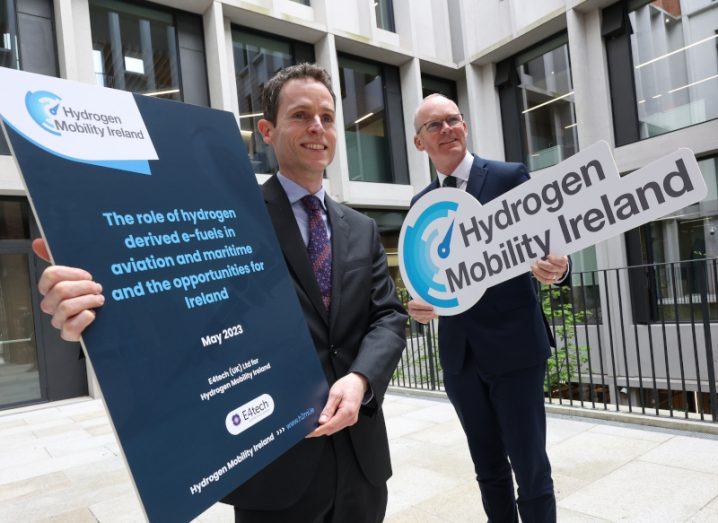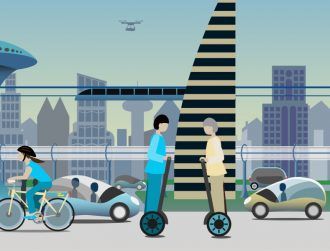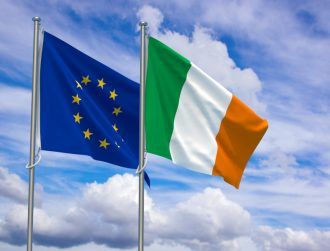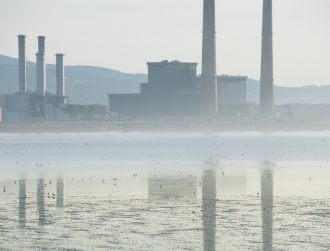
Jonathan Hogan, Hydrogen Mobility Ireland and Simon Coveney, Minister for Enterprise, Trade and Employment. Image: Rockwood
Hydrogen Mobility Ireland says in its report that Ireland’s wind capacity could be leveraged into producing e-fuels for aviation and shipping.
According to a new report by Hydrogen Mobility Ireland, e-fuels could potentially reduce CO2 emissions while meeting half of Ireland’s future aviation demand.
Hydrogen Mobility Ireland’s members include Toyota, Maxol, Hyundai, Energia, Gas Networks Ireland, Bord na Móna, CIE and ESB. The group of stakeholders is looking into the potential for the deployment of hydrogen across transport.
Its latest report, launched today (22 May), pertains to e-fuels for use in aviation and shipping transport. E-fuels are synthetic alternatives to commonly used fossil fuels.
The group posits that if Ireland develops a domestic hydrogen ecosystem for sustainable transport, it could provide a significant boost to the economy and the employment market.
For example, Hydrogen Mobility Ireland estimates that the process of creating sustainable aviation fuels (SAF) derived from hydrogen for use in commercial aircraft has the potential to create more than 10,500 jobs across Ireland by 2050.
That is equivalent to a total gross added value (GVA) of up to €230m per year. The report makes several recommendations to enable Ireland to develop a domestic e-fuels sector.
It recommends that the Government provide clear and committed e-fuels policy commitments to reassure private investors and project developers.
It also says that Ireland’s wind generation capacity could assist in the sourcing of the hydrogen needed to produce e-fuels.
And the report also looked beyond Ireland at how the EU is approaching the role of e-fuels in transport decarbonisation.
The EU has agreed a target of 35pc SAF by 2050. Hydrogen-derived synthetic fuels must comprise at least 2pc of the region’s shipping fuels by 2034.
“Through strong policy commitments from both the European Parliament and across the member states, it is evident that e-fuels produced from hydrogen will contribute significantly to decarbonisation efforts in both the aviation and shipping transport sectors,” said Jonathan Hogan, business manager at Hydrogen Mobility Ireland.
“Ireland must now signal its own intent in this regard through concrete actions; leveraging the country’s significant wind energy capacity to facilitate the production of e-fuels, allocating sufficient funding to planned and future e-fuels projects and committing to a defined strategy to meet EU e-fuels targets,” he added.
10 things you need to know direct to your inbox every weekday. Sign up for the Daily Brief, Silicon Republic’s digest of essential sci-tech news.






